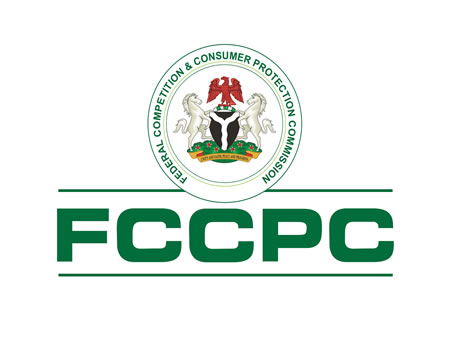
FCCPC
FCCPC Has Regulatory Authority in All Sectors of Nigerian Economy, Court Rules
. Says NCC shares consumer rights protection with FCCPC in telecoms sector
The Federal High Court in Lagos has affirmed that the Federal Competition and Consumer Protection Commission (FCCPC) has power to regulate competition and consumer protection in all sectors of the Nigerian economy, including telecommunications.
The presiding judge, Justice F.N. Ogazi, in his judgement said the FCCPC has the constitutional mandate and the primary authority to prevent anti-competition practices and protect Nigerian consumers.
The judge said thus is in line with Sections 17 and 18 of the Federal Competition and Consumer Protection Act (FCCPA) 2018.
The case, instituted by Emeka Nnubia, a shareholder of MTN and a legal practitioner, is seeking to halt the FCCPC’s investigation into MTN Nigeria.
Nnubia argued that the FCCPC’s inquiry could violate data protection laws, insisting that regulatory powers over MTN resided with the Nigerian Communications Commission (NCC), and not FCCPC.
However, in his ruling, Justice Ogazi clarified that Section 90 of the Nigerian Communications Act (NCA) 2003, which granted NCC jurisdiction over competition matters within the telecom industry, must be read alongside Section 104 of the FCCPA 2018, which established FCCPC as the primary regulatory authority on competition and consumer protection in all sectors.
According to the judge, the FCCPA, being the later legislation, superseded conflicting provisions of the NCA 2003 to the extent that they sought to exclude FCCPC’s oversight in the telecommunications industry.
The court further said the NCC did not have exclusive competition regulation authority in telecommunications, adding that both NCC and FCCPC have concurrent jurisdiction, ensuring a coordinated approach to fair competition and consumer welfare in the telecom industry.
A statement by the Director, Corporate Affairs, FCCPC, Ondaje Ijagwu, stated that ruling insisted that Section 105 of FCCPA 2018 provided for collaboration between FCCPC and sector regulators, including NCC.
According to the statement, this aligned with global best practices, where consumer protection regulators collaborated with industry-specific regulators.
The ruling also reaffirmed FCCPC’s paramount authority in competition and consumer protection matters, while also recognising the role of NCC in regulating telecommunications operations.
The judge stated that entering into a Memorandum of Understanding (MoU) with sector regulators was not a condition precedent for FCCPC’s enforcement of its statutory functions.
He maintained that it was the obligation of sector regulators to engage with FCCPC to define working arrangements, not the other way round.
Consequently, the court ruled that FCCPC acted within its statutory powers in issuing summons to MTN Nigeria as part of its ongoing inquiry into potential anti-competitive practices.
It insisted that the summons and request by the commission was found to be lawful and within the scope of FCCPC’s investigative powers.
The court also held that the commission’s request for information from MTN did not violate any data protection laws, including the Nigeria Data Protection Act 2023 and the NCA 2003.
It stated that no personal data was requested, and MTN’s obligation to disclose information in the public interest is a legitimate basis for compliance with FCCPC’s inquiry.
The court, however, commended the excellence of legal arguments presented in the matter, rejecting any attempt to restrain a regulatory authority from exercising its statutory functions.
The court ruled that preventing a regulator from discharging its duties violated the doctrine of separation of powers enshrined in the constitution.
The court recognised that the case raised important questions regarding the evolving landscape of competition and consumer protection law in Nigeria, and declined to award costs due to the public interest significance of the case.
Nnubia, the plaintiff, appeared in person, Mr. Abimbola Ojenike with Ms. Oluwadamilola Omotosho appeared for the second defendant (Federal Competition and Consumer Protection Commission), and Mr. Chinonso Ekuma appeared for the third defendant (MTN Nigeria).
There was no legal representation for the first defendant, the Minister of Industry, Trade and Investment.
